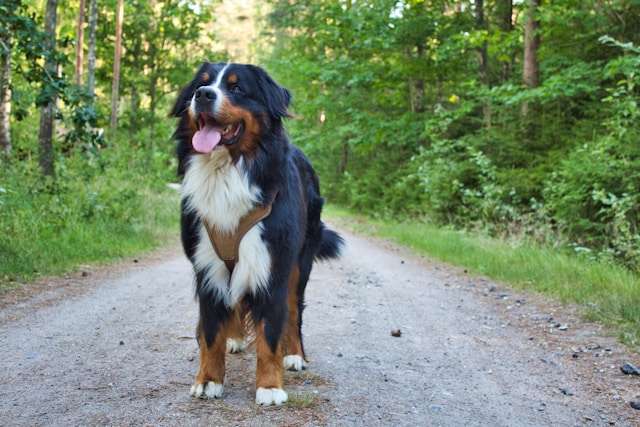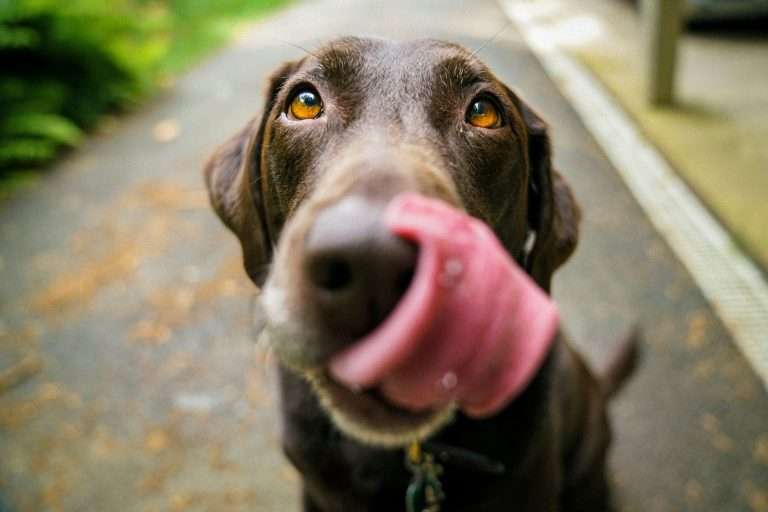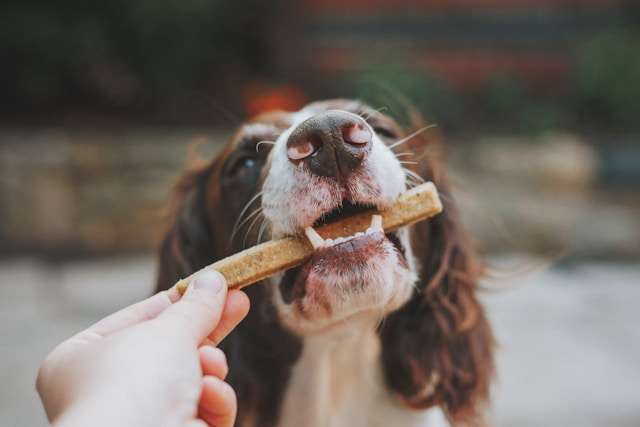Can Dogs Eat Nuts Safely? 3 Types Of Nuts That Are Safe

Can Dogs Eat Nuts Safely?
Nuts may cause digestive issues in some dogs, including vomiting, diarrhea, and weight gain. They also increase the risk of pancreatitis in some pups.
Additionally, many packaged nuts contain coatings of pepper, garlic, chocolate, sugar, or salt that are toxic to dogs and could have high phosphorus or sodium content. [1]
Table of Contents
High-fat content
Nuts contain high-fat content, which can contribute to obesity and pancreatitis in some dogs. Furthermore, many varieties of nuts can produce molds or mycotoxins that are dangerous for canines.
Most nuts also have an unsafely high sodium content. Moreover, some varieties, like macadamias and pistachios, can also cause stomach upset in animals.
Nuts containing ingredients like garlic, chocolate, and onions may also be toxic to dogs and present choking hazards for smaller breeds.
Dogs gobble food without chewing correctly, so unshelled and large nuts pose a choking hazard. At the same time, their indigestible shells and husks could potentially block or perforate intestinal pathways, leading to emergency surgery if left in their digestive systems for too long.
Nutty snacks can benefit most dogs in moderation; however, only when offered plain, unseasoned, and unsalted.
Flavored and roasted varieties should be avoided due to potentially harmful ingredients and excess salt, which could contribute to water retention in dogs.
Furthermore, certain nuts are susceptible to mold growth and mycotoxin production, while others have high salt content, which may cause digestive issues—walnuts and pecans are particularly vulnerable; almonds possess very high-fat contents, which could trigger pancreatitis symptoms in some dogs.
For more information about pecans, see our article: “Can Dogs Enjoy Pecans? Uncovering the Nutty Truth.”
Choking hazard
Nuts pose a choking risk for dogs due to their small size and hard exterior; in severe cases, they can even block intestinal passageways completely, necessitating vomiting induction or hospital support for managing symptoms.
Macadamia, pine, and Brazil nuts pose a severe choking hazard to dogs. Never give any form of these nuts directly or indirectly to them in any form; should any appear in their stomach, immediately contact the veterinarian – especially older nuts that could contain fungal contamination of aflatoxin.
Aflatoxin, a toxin that can pose significant health threats to dogs, may cause numerous issues ranging from vomiting and diarrhea to more severe conditions like pancreatitis or liver damage.
Pine nuts pose a potential choking hazard for dogs, so they should only be eaten in moderation. Furthermore, their high concentrations of fat and phosphorus may cause digestive upset and increase urinary stone formation risk.
Brazil nuts can be safely fed to dogs in small quantities; however, smaller breeds should avoid eating these nuts due to the risk of choking hazards. As they contain abundant fat and should only be given when required (i.e., with any respiratory or heart conditions), mold and aflatoxins could potentially develop on them.
Inflammatory bowel disease
Nuts such as Brazil nuts, pecans, pistachios, and walnuts contain mycotoxins, which may pose significant health concerns for dogs. Mycotoxins may lead to inflammation or even death, and eating these nuts could increase dogs’ obesity.
Dogs that consume nuts regularly may face more than the risks of choking and gastrointestinal irritation when eating nuts; they also risk weight gain and pancreatitis due to high fat and salt content, worsening existing conditions such as heart or kidney disease in their bodies.
Furthermore, these nuts may contain aflatoxins, which are toxic to dogs. Aflatoxins are poisonous fungi that grow inside nuts and cause severe illnesses in canines – liver cancer, kidney diseases, or even death can occur as a result of their consumption.
Overall, small quantities of plain, unsalted nuts may benefit dogs as treats, although it’s wiser not to provide these on an ongoing basis. It is best to offer unshelled nuts free from salt or seasonings; in particular, xylitol-containing varieties should not be fed to them due to potential danger.
In case of suspected allergies to nuts, it’s advisable to seek advice from your veterinarian immediately and monitor your dog with a pet camera such as a Petcube Cam for more accurate observations of their habits for potential issues or potential issues that arise.
Aflatoxin
Owners may worry that nuts’ high-fat content could cause their dog’s gastrointestinal distress, such as vomiting and diarrhea, or worsen into pancreatitis, requiring veterinarian intervention to treat. Furthermore, such foods may increase your pup’s weight gain and risk for cardiovascular disease.
Occasional unsalted peanuts are usually okay for most dogs, but salted varieties and any flavored nuts should be avoided to ensure proper hydration of your pup.
In addition, many packaged varieties contain additional coatings that could be hazardous, such as garlic and onion powder or even sugar substitutes, such as xylitol (an artificial sweetener).
Hazelnuts, almonds, and Brazil nuts contain high amounts of fat, which may exacerbate gastrointestinal issues in some dogs.
Furthermore, these nuts pose more of a choking hazard and could get lodged in their throats and cause significant distress to your pup.
Insects like Aspergillus species are responsible for polluting some nut crops with aflatoxin, leading to aflatoxicosis in both pets and humans when consumed.
Aflatoxicosis symptoms include vomiting, seizures, liver damage, and even death in some instances; taking photos and noting lot numbers/best-before dates on packages will aid the FDA in tracking down their source.
If you believe your pet may have eaten anything that contains aflatoxin, they must provide these details so they can trace where it came from as soon as possible so they can trace its source as quickly as possible so it can help pinpoint where it came from and track its source.
Mycotoxins
Mycotoxins produced by molds and fungi can be hazardous to dogs’ health. Ingesting nuts containing these mycotoxins, such as peanuts, almonds, pecans, or walnuts, could cause tremors, seizures, or liver damage.
However, some varieties are safe in moderation if labeled carefully before giving them to your pup.
Flavored nuts, like onion powder and garlic chocolate, could contain additional risks, as they could contain dangerous ingredients that could poison your pup further.
Nuts covered with icing or coating pose additional health risks and should never be given to your pup, compromising their well-being.
Nuts contain high amounts of fat, which can contribute to pancreatitis when eaten in large quantities.
They may also pose choking hazards for smaller breeds and cause intestinal blockage for larger ones if given frequently, so it’s wise to give these treats occasionally and limit consumption accordingly.
Almonds, pecans, and Brazil nuts are non-toxic to dogs but should only be given in small amounts to avoid gastrointestinal upset or pancreatitis.
Furthermore, these nuts must be unsalted and unshelled from a single bag to reduce cross-contamination with mycotoxins.
Furthermore, any artificial sweetener, such as xylitol (which can kill dogs), must also be absent; additionally, it’s wise to avoid other products, such as acorns, that may also contain mycotoxins—staying away from such toxic products may help prevent vomiting or diarrhea altogether.
Cross-contamination
Nuts contain high levels of fat that may irritate some dogs’ stomachs and, in extreme cases, cause pancreatitis. This incurable condition leads to diarrhea, vomiting, and lethargy for dogs and humans alike.
Pancreatitis may also create distended bellies that hunch back when walking—thus, it’s wise to introduce nuts slowly into your pet’s diet over time.
Even “safe” nuts may still pose risks for your dog, depending on their ingredients and preparation methods. Never feed peanuts salted or seasoned with garlic, onion, or chocolate, as these could contain toxic ingredients.
Also, avoid giving your dog nuts that contain shells or husks, as these present choking hazards.
Be careful with walnuts, as these contain juglone, a toxic compound produced by certain tree roots that can lead to convulsions or seizures in dogs.
Furthermore, black walnuts contain mycotoxins produced by molds and fungi, which may be lethal in large doses if pets consume them.
Finally, never feed old or spoiled nuts to dogs because they may contain aflatoxins, which cause stomach upset, tremors, and liver problems in dogs.
3 Dog-Safe Nuts
1. Peanuts
Technically, peanuts are legumes because they grow underground, so they’re not “nuts” per se. However, they are an excellent source of protein (and most people think of them as nuts). As such, peanuts are safe for dogs but are high in fat, so they should be fed sparingly.
However, a single tablespoon of smooth peanut butter contains the total daily fat allowance for a 42-pound dog. Some peanut butter brands contain toxic ingredients like xylitol, and dogs with pancreatitis or kidney problems should steer clear.
2. Cashews
Cashews are soft and a reasonable size. These are considered safe if they are shelled and you feed them in moderation. However, most packaged cashews are salted, so look for unsalted and unprocessed varieties.
3. Hazelnuts
Your pup shouldn’t have health issues if the hazelnuts are unsalted, uncoated, and in moderation. However, be careful as small dogs can easily choke, larger dogs will likely swallow them whole, and the nut can get stuck in their intestines. [2]
More Nutrition Tips:
- Ingredients To Avoid In Dog Food: A Comprehensive Guide
- Is Raw Chicken For Dogs? The Potential Health Risks
Which three nuts are safe for dogs to eat?
1. Peanuts. Technically, peanuts are legumes because they grow underground, so they’re not “nuts” per se. However, they are an excellent source of protein (and most people think of them as nuts). 2. Cashews. Cashews are soft and a reasonable size. These are considered safe if they are shelled and you feed them in moderation. 3. Hazelnuts. Your pup shouldn’t have health issues if the hazelnuts are unsalted, uncoated, and in moderation.







